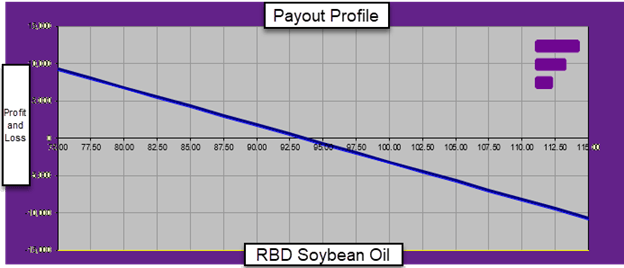It might seem like hedging your feedstock, and renewable diesel risk is like shooting apples in a barrel. Some commercials hedge their renewable diesel feedstocks with soybean oil futures and protect against falling renewable diesel prices by selling the NYMEX Low Sulfer Diesel futures contract.
Unfortunately, this is a less than perfect way to lock in your refining margin. On the bright side, alternative ways to hedge your feedstock exposure exist if you are willing to trade in the over-the-counter market.
What is the over-the-counter market?
Over-the-counter (OTC) transactions are private transactions between two counterparts. Instead of trading through an exchange, you work with an OTC market-maker to transact an investment with a predefined payout. A common way to accomplish a commodity hedging investment would be to buy or sell a fixed-for-floating swap that pays off based on the price of a Fastmarket index.
For example, let’s assume that you have exposure to a feedstock that mimics the price movements of The Jacobsen Refined, Bleachable, and Deodorized (RBD) Soybean Oil priced in Central Illinois. You can purchase or sell a financial swap that pays off if the price of RBD soybean oil rises or falls.
Who would want to trade a financial swap?
If you have exposure to feedstocks and are concerned that no financial instruments mimic the returns of these feedstocks, then you might consider trading an OTC swap as part of your risk management. Fastmarkets is aware of market makers that will trade over-the-counter financial instruments based on Fastmarkets prices.

What does the payout look like?
The payout of a swap can vary. You can have a swap settle against one date or multiple dates. In the commodity markets, it is common for the settlement to be the average of a month or quarter. You can see from the payout diagram that if you sell an RBD soybean oil swap for $0.93 per pound, you begin to generate profits from the trade as the price falls.
Why not just use soybean oil futures to hedge feedstock exposure?
As renewable diesel margins have increased, the demand for feedstocks that generate credits has soared. Demand for pretreated feedstocks that mimic the price of RBD soybean oil has led to the breakdown in the correlation between crude soybean oil and RBD soybean oil.
Correlation refers to whether two or more assets have returns that move in tandem. A correlation of 100% means that the returns of the two investments move perfectly in tandem. A correlation of -100% indicates the returns roll in opposite directions of one another. A zero correlation means the returns of each asset beat to their own drum.
The chart of the rolling correlation between crude soybean oil and RBD soybean oil collapsed as the spread between the price of crude soybean oil and RBD soybean oil diverged. The lack of soybean oil refining capacity into a pretreated feedstock or refined oils that can be used for food has made hedging with crude soybean oil, less precise.
Refiners that crush and refine soybean oil and vegetable oil consumers can benefit from using a swap to mitigate their exposure to falling or rising prices. Not only is a consumer exposed to the rising cost of RBD soybean oil, but they could be exposed to the spread between RBD soybean oil and crude oil if they decide to use soybean oil futures (delivered specifications are crude soybean oil) as their hedging tool. The correlation between feedstocks, including Used Cooking Oil (UCO), Distillers Corn Oil (DCO), Bleachable Fancy Tallow (BFT), and crude soybean oil, is nearly zero.
Click here to view our animal tallow prices
Hedging your feedstock with a soybean oil futures contract if you have exposure to RBD Soybean Oil, RBD Canola Oil, UCO, DCO, or BFT is likely an imperfect hedge.
Summary
The bottom line is that by hedging in the over-the-counter market, you might find a way to mitigate your feedstock exposure with a financial instrument that mimics the returns of a Fastmarkets price. Many Fastmarket prices, including RBD soybean oil prices, RBD Canola oil, Distillers Corn oil, Used Cooking oil, and Tallow, are feedstocks that can generate financial swaps or options that can help you hedge your exposure to feedstocks. If you want further details on how a financial swap works, contact our risk solutions team.






